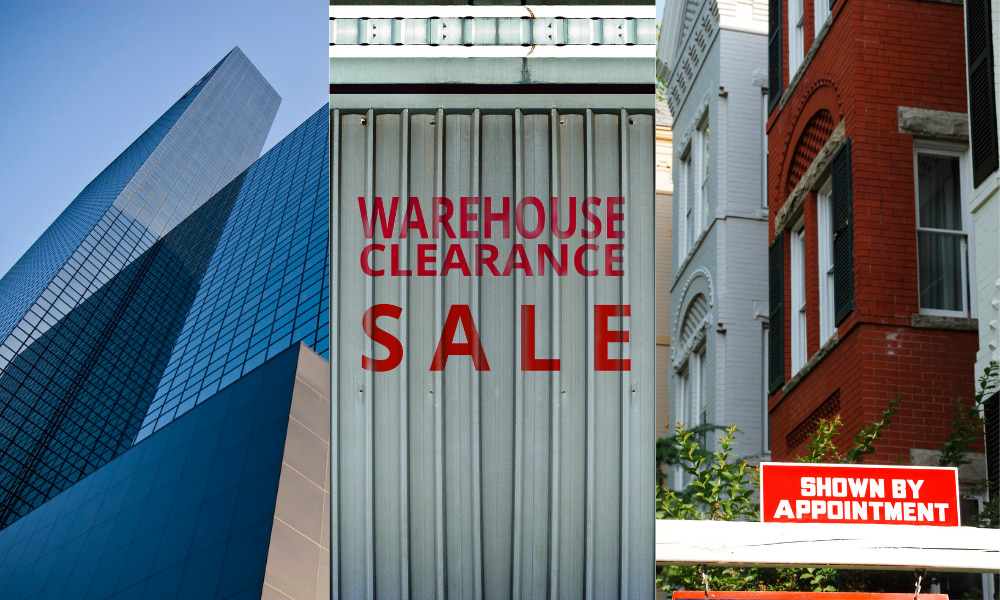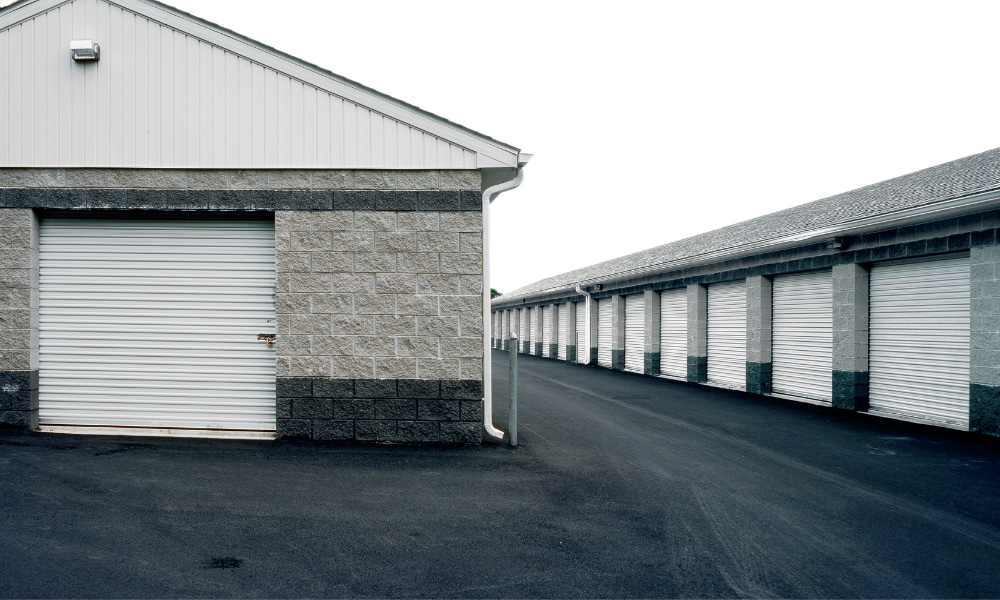Investing in commercial real estate can be extremely lucrative if the process is done right. Smart real estate purchases can result in consistent returns, growth potential, and passive income, for example, but taking on an investment property without doing the necessary research to get started could land you with more expenses than cash flow.
It is essential to understand that not all commercial real estate investments are considered equal, though. In fact, to truly get the most out of your investment, you need to have a good understanding of the space. This guide will go over some basics of commercial real estate, including how to get the most from your initial investment, what you need to know about calculating vacancy rates and real estate taxes, and how to maximize commercial leases to get the best return from your properties.
Why People Invest in Commercial Real Estate
There’s a lot of income potential in investing in commercial property and leasing it out to business tenants. In most instances, commercial real estate involves:
- Office buildings
- Retail buildings
- Industrial buildings
- Warehouses
- Apartment buildings
- Mixed buildings

Most are self-explanatory in terms of the types of tenants that might rent out such a space. The exception here might be “mixed buildings,” which are properties that have mixed types of businesses and/or residential sections using their square footage. Such a building might include retail or offices on the main floor, then have multiple floors filled with residential apartments above the commercial spaces.
Many people who decide to get into the commercial real estate space often do so looking to:
- Gain a Profit
Generally, the best reason to invest in commercial property is the earning potential, which could help investors achieve the financial freedom they’ve always desired. Commercial real estate properties typically have an annual return between 6% and 12% of the purchase price. This is a significantly higher range than the returns residential real estate investors’ single-family home properties often achieve.
- Form Professional Relationships With Common Goals
Many times, commercial tenants and property owners have aligned goals because retail tenants have a vested interest in maintaining their stores. As a result, the tenant puts care into the property and often takes steps to improve the overall quality, which ultimately increases the value of the commercial real estate investment and can create a solid professional relationship.
At the very least, that care and attention lowers overall maintenance costs in commercial buildings, which puts the commercial property’s owner or investors in a position to offer a better space and favorable lease terms to the next tenant.
- Have More Flexibility
There are fewer consumer protection laws that govern commercial leases. Consequently, investors have more flexibility in lease terms and how they operate. This can make property management simpler, which improves investors’ ability to take on additional commercial investments. These might include any number of properties of different types, like self storage, office space, shopping centers, industrial retail, strip malls, an office building, or mixed use properties, all of which have great opportunities for leasing to great tenants.
Even though any type of real estate investment can have positive returns, investing in commercial properties can lead to more significant financial rewards. It’s important to do your due diligence and gain as much understanding about those potential returns before diving in, however. That might include considering your net operating income, net absorption rate, digging into your operating expenses, and considering vacancy rates, but the end result is often that investing in real estate ― at least, investing in the right real estate situation ― will be a smart long-term investment.
4 Must-Know Facts About Investing in Commercial Real Estate
When you are looking to invest in commercial properties, you need to keep in mind the most critical factor is the aforementioned due diligence. Doing your homework and learning the ins and outs of a particular space or market can be the difference between success and failure. That is why if you are ready to embark on this process, you need to understand the following:
1. You Need Money.
There are a lot of costs to consider when you decide to get into commercial real estate investing. Here are a few things to keep in mind:
- On average, a lender requires a potential property owner to come up with at least 20% of the property purchase price as a down payment.
- There are also closing costs, which typically run around 5% of the purchase price.
- You may need additional funds to get the property in rentable condition.
- You will want to have reserve money to handle repairs and occupancy gaps.
It is important to go over these factors with your wealth management advisor to truly understand how much money you need to start investing in commercial properties. The rate of return on your investment needs to help offset that initial investment and create income over time, so you’ll want to make sure you have the appropriate funds in place to weather that waiting period between a purchase and eventual incoming cash flow.
2. Everything Takes Longer.
Unfortunately, in commercial real estate, everything takes longer. This includes the time you spent on researching properties, finding tenants, completing renovations, and earning revenue. It’s important to understand that:
- If you want to see returns resulting from your commercial real estate investments quickly, this space might be best left to someone else.
- Commercial investing might take anywhere from months to years to see the returns you’re hoping for, depending on your specific commercial real estate property and the types of tenants you attract.
Strip malls and shopping centers have much different business schemes and operating expenses ― and thus earning potentials or income time frames ― than a mixed use property or residential apartments, for example.
3. You Need to Know Your Risk Tolerance.
Before you can invest in a property, you need to know your risk tolerance. Are you someone who leans towards high-risk, high-profit potential properties? If you answered yes, then managing more volatile commercial properties may provide you with the best results and could offer much higher returns in the long run.
However, if you are someone who wants a lower-risk property, then triple net retail properties may be more of the investment type you want. These triple net lease properties may have slightly smaller returns than other commercial properties, but they are also more resistant to the ups and downs of the market.
4. There are Commercial Properties for Beginners.
If you are just starting out in the commercial real estate market and looking for a decent commercial property investment, you may want to consider apartment buildings, storage units, office buildings, and mobile home parks. These types of properties are relatively low risk for a new real estate investor because the leases are stable, there are always opportunities for passive income, your net operating income can be easily calculated, and you’ll pretty much know your potential returns as soon as you get started.

Getting into the commercial real estate business can be very beneficial, but beginners need to approach commercial real estate investments with caution. Poor investment practices can lead to huge problems and issues, making having the right commercial real estate know-how imperative to get your business running smoothly, avoid financial pitfalls, and be on your way to the success you always wanted.
Is Commercial Real Estate a Good Move for You?
If you are looking to get into the commercial real estate property market, consider the following questions to decide if such investments are a good fit:
- Do I have the time to invest in commercial real estate?
- Do I have enough money to invest in commercial real estate?
- Do I understand the commercial real estate market, or do I have someone to turn to for help?
- Can I spot a good investment opportunity?
- Do I have a solid investment strategy that is right for me?
Investing in commercial real estate is not only an exciting venture, but can also provide some of the highest income streams. You need to make sure you talk to the pros before you jump into this complicated yet appealing proposition, however. They can walk you through all the ins and outs of the real estate investing space, including passive income and cash flow opportunities, triple net lease perks, the importance of due diligence, capitalization rate (also called “cap rates”) information, and so much more.
Trust Your Ideas to Commercial Real Estate Investing Experts
If you’re considering getting into the commercial real estate investing world, contact The Genau Group today.
Our experts have been serving commercial real estate investors in the greater Washington, D.C. area with expertise for years, and we can’t wait to help you determine if your commercial property could be a lucrative investment in your financial plan.
We’ll walk you through any commercial real estate investment questions you might have and do everything we can to get you the answers you need.






